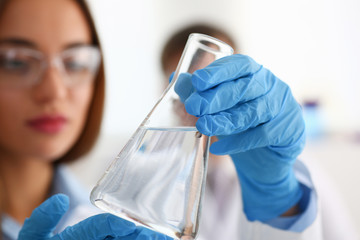
'Green' Products For Kids Contain Toxic Chemicals: A Study
Many parents prefer "eco-friendly" products for their children, but are such products really free of potentially harmful chemicals? A team of researchers has now found that many of these "green" products actually contain toxic substances.
PFAS (Per- and Polyfluoroalkyl Substances) are a large group of chemicals that are widely used in the manufacturing of many products we use every day. For instance, they can be used to make stain-resistant clothes or non-stick cookware.
However, PFAS have also been linked to various health effects such as cancers, low birth weight, asthma and thyroid disease, Silent Spring Institute noted in a news release Wednesday. There's also evidence that it can suppress the immune system, possibly impacting the effectiveness of childhood vaccines. According to the National Institutes of Health (NIH), previous studies have found PFAS in people's blood and urine, indicating widespread occurrence.
For their study, published Wednesday in the journal Environmental Science & Technology, the researchers tested 93 items that are "marketed to or often used" by children and adolescents. They included furnishings, clothes and bedding that had "water and/or stain resistance and 'green' (including 'nontoxic') assurances."
"Since product labels rarely list chemical additives, including PFAS, we evaluated whether other information on product labels can be used by consumers to select products without PFAS," the researchers wrote.
However, rapid screening tests found that 54 of the products actually contained detectable fluorine, which is a marker of PFAS. Further testing revealed the presence of 36 different PFAS chemicals in the products that had "water-resistant" or "stain-resistant" labels.
"Products labeled as water- and/or stain-resistant had more frequent detections and higher concentrations of methanol-extractable targeted PFAS than products not labeled that way," the researchers wrote.
PFAS were most commonly detected in upholstered furniture, clothes and pillow protectors, with clothes and pillow protectors "generally" having higher PFAS levels compared to other products. Furthermore, a chemical that has already been phased out in the U.S. – PFOA – was detected even in products that are labeled as "green." Most of them came from China.
"These are products that children come into close contact with every day and over a long period of time," study co-author Kathryn Rodgers, of Boston University School of Public Health, said in the news release. "Given the toxicity of PFAS and the fact that the chemicals don't serve a critical function, they should not be allowed in products."
The results of the study show that green certifiers should add PFAS in their criteria and the reviews should be more thorough. Their work shows that "current green assurances do not consistently indicate the absence of PFAS."
"The ability of PFAS to migrate out of consumer products used by children or adolescents raises concerns about exposures to these toxic chemicals during sensitive developmental periods," the researchers wrote. "The toxicity of many PFAS and the potential for long-term exposures to children and adolescents from intimate contact with these products support removing noncritical uses of PFAS from products used by children or adolescents as a way to protect their health."
Original article by Medical Daily.
-------------------------------------------------------------------------------------------
Want to learn more about big tech? Check out our course Improving Mental and Behavioral Health Care with Digital Technology!
This course is intended for clinicians who are curious about, or who may already be considering, planning for, or implementing the use of digital technology as an adjunct to care. Digital technology would most likely be relevant within primary care, mental and behavioral health, social services, educational, research, and residential settings. Within this course we will focus primarily on the use of smartphone and wearable device applications, but will also take a look at big data, give a nod to artificial intelligence, and a gander at a new diagnostic paradigm, made possible by smart computers - all of these domains of technology are interlaced. We will even give a little side-eye to the DSM-5.
Pedagogy's courses are available for purchase by the individual or facility. For individuals, register with us to create your log in and password, click on the course title of interest and then click the Buy Now button. For a complete listing of all our online continuing education courses, including the largest selection of infusion continuing education courses offered online, click here!
For organizations that would like to purchase education for their entire staff, email sales@pedagogyeducation.com and let us know the course(s) of interest and how many staff members you need to provide education for, and we will be happy to send you a price quote.

